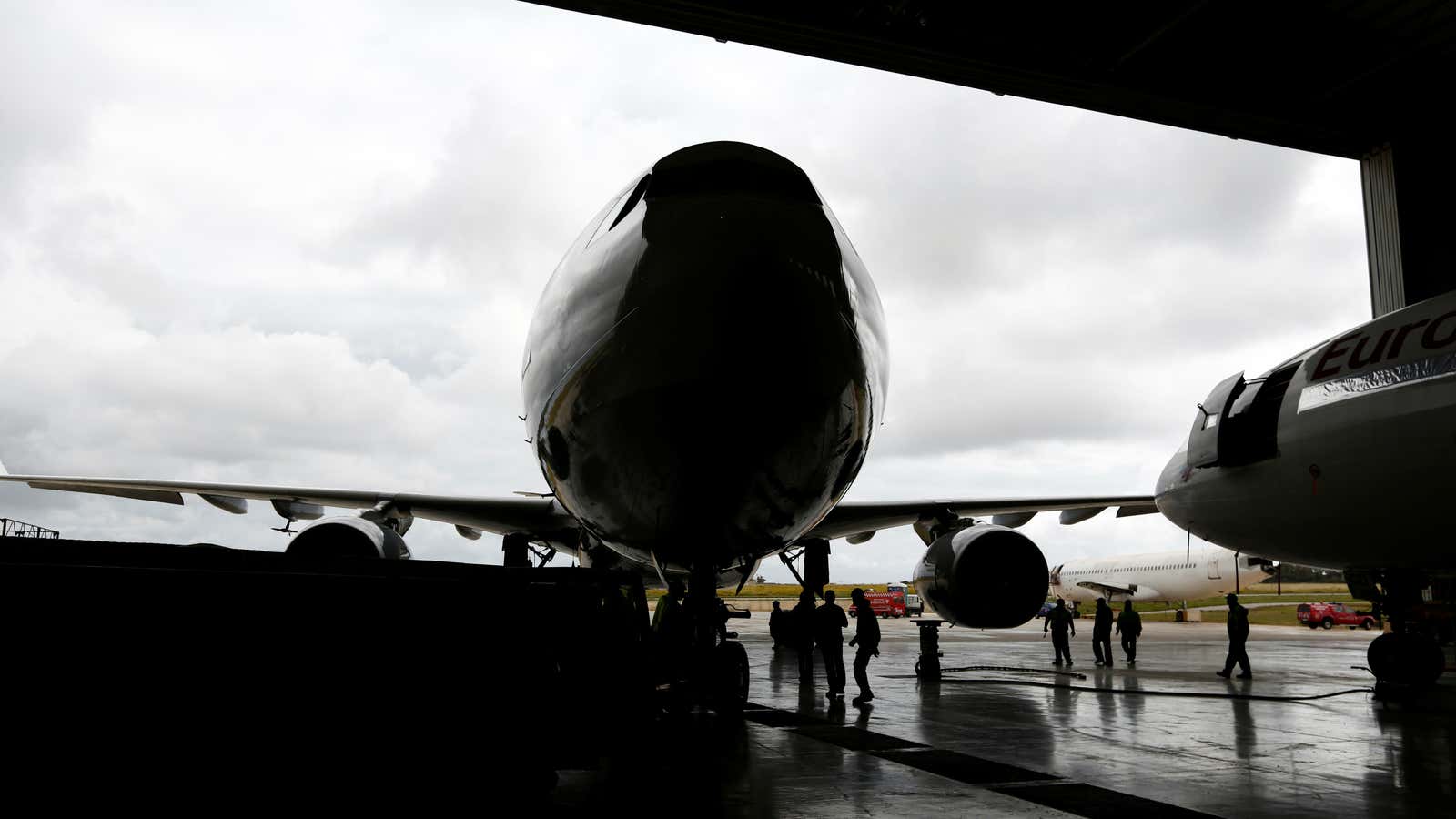If you’ve booked a flight from London to New York on the low-cost carrier Norwegian Air for this month, don’t be alarmed if a mysterious, unmarked aircraft is sitting on the tarmac when you get to the gate.
That’s because Norwegian has entered a “wet-lease” contract with Hi Fly, a Lisbon-based airline whose business model is to help fill in the gaps when other airlines’ best-laid plans go awry, demand suddenly peaks, or a last-minute technical fault would otherwise cause a costly cancellation for the airline.
In the case of Norwegian, the airline announced in January that it was repairing the engines on each of its 21 Boeing 787 Dreamliners. Instead of cutting down on the frequency of their multiple daily non-stop flights between London and New York—a route which the 787 typically flies—the airline has decided to lease an A330-200 aircraft from Hi Fly to fill in the gaps on its service.
Interestingly, in this on-demand arrangement it’s not just the aircraft that gets swapped out. “Wet-leasing” essentially means that aircraft, crew, maintenance, and insurance are all part of the package provided to an airline who can’t, for some reason, operate its normal routes. Hi Fly also offer services to private corporations and governments.
Amenities on board may differ as a result. As one reviewer noted, a Norwegian flight she took that was operated by Hi Fly offered free food and drink, but lacked an entertainment system of any kind, which is essentially the inverse of Norwegian’s LowFare ticket offering. The newer, more fuel-efficient Dreamliners also have design elements that provide a more pleasant flying experience compared to older aircraft, which some inadvertent Hi Fly passengers may be disappointed to miss out on.
Norwegian is not the only one to make use of Hi Fly’s services. Legacy and flag carriers including Virgin Atlantic and Air New Zealand have wet-leased from the firm before, and Hi Fly just added an A380 jumbo jet to its existing lineup of 11 aircraft—indicating that the company anticipates more demand in the future. The aggressive growth strategy of Norwegian has certainly upped the odds of service hiccups such as this.
Norwegian has struggled to reach profitability thanks to its rapidly growing fleet and ever-expanding route network, leaving little room for error. Reports this week suggest IAG, parent company of British Airways, is angling to acquire the airline. It revealed the purchase of a 4.6% stake in the budget airline earlier this week.
The low-cost long-haul hustle remains incredibly competitive—and unpredictable.
